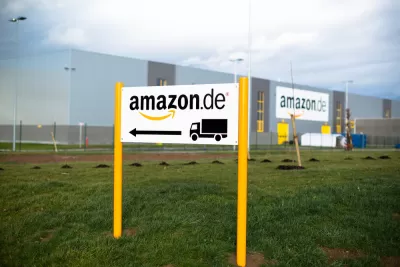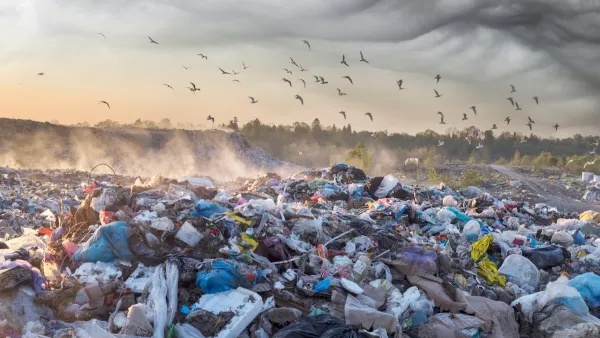A new study from University of Michigan researchers tallies, and then compares, the greenhouse gas emissions from different sectors of the U.S. economy.

"Transportation isn’t the only sector that contributes to greenhouse gas emissions in our world, but it’s a big chunk, and it’s portion is growing," according to an article by Charlie Sorrel.
Sorrel is sharing new research by Michael Sivak and Brandon Schoettle, from the University of Michigan, charted emissions across sectors of the U.S. economy since 1990, finding that industry continues to decrease its emissions while transportation continues to increase its emissions.
"Despite a growth in GDP in the U.S. over the same period, industrial emissions decreased by 11% in the quarter-century covered by the study," explains Sorrel. Compare that to transportation, where medium to big trucks are responsible for most of that sectors increasing emissions. "Sivak and Schoettle’s study shows that relative emissions from medium-to-large trucks have almost doubled since 1990, from 3.6% to 6.0%" Sorrel credits that rise in part to delivery services like Amazon. That fact is particularly relevant to planners as they will continue to confront the effects of expanding delivery services in cities and communities around the world.
The article includes more details about the findings of the study, and what they mean for the impact of the economy on the environment.
FULL STORY: Transportation Is Now The Fastest-Growing Cause Of Greenhouse Gas Emissions

Planetizen Federal Action Tracker
A weekly monitor of how Trump’s orders and actions are impacting planners and planning in America.

Vehicle-related Deaths Drop 29% in Richmond, VA
The seventh year of the city's Vision Zero strategy also cut the number of people killed in alcohol-related crashes by half.

As Trump Phases Out FEMA, Is It Time to Flee the Floodplains?
With less federal funding available for disaster relief efforts, the need to relocate at-risk communities is more urgent than ever.

Berkeley Approves ‘Middle Housing’ Ordinance
The city that invented single-family zoning is finally reckoning with its history of exclusion.

SEPTA Budget Slashes Service by 45 Percent
The Philadelphia-area transit agency is legally tasked with maintaining a balanced budget. Officials hope the state will come to the rescue with additional funding.

Connecticut Governor Vetoes Housing Bill
Gov. Lamont reversed his view on a controversial affordable housing bill that would have required municipalities to zone for set amounts of affordable housing to receive state funding.
Urban Design for Planners 1: Software Tools
This six-course series explores essential urban design concepts using open source software and equips planners with the tools they need to participate fully in the urban design process.
Planning for Universal Design
Learn the tools for implementing Universal Design in planning regulations.
Heyer Gruel & Associates PA
JM Goldson LLC
Custer County Colorado
City of Camden Redevelopment Agency
City of Astoria
Transportation Research & Education Center (TREC) at Portland State University
Camden Redevelopment Agency
City of Claremont
Municipality of Princeton (NJ)





























